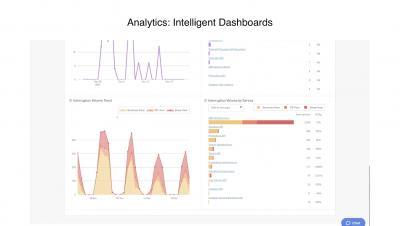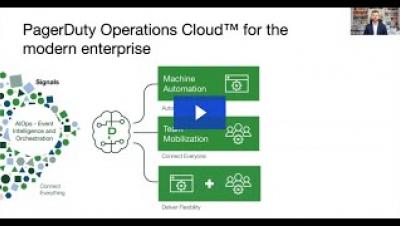Operations | Monitoring | ITSM | DevOps | Cloud
Incident Response
A single pane of glass for automatic incident response for Bridgeport Public School District
“I have been doing this for 20+ years and have been using literally every product out there. Derdack is unique at how issues are addressed and communicated out because of the seamless integration, maturity and flexibility of the platform. Working with Derdack has been a game changer for us and helped us to do more with less.” Jeff Postolowski, Director Information Technology Services, Bridgeport Public School District
What is Incident Response?
When a service is down, a system is failing, or a security issue is in the midst of occurring, organizations need a solid incident response process to get up and running again. Incident response isn't just for high severity, lights out incidents either; if you've rebooted your computer to fix a problem, you've been an incident responder yourself! Incidents happen, and any successful organization knows that instead of pretending that one day nothing will ever go wrong, it's far more useful to develop a comprehensive operational response plan. And to do so, you need to know what incident response is! Let's get into it.
Incident Response in less than 2 minutes by PagerDuty
Modernize Your Operations with Automated Incident Response
Space Made Simple: How PagerDuty Enabled Loft Orbital to Achieve Incident Response Lift Off
The next great space race is on. Today, there are multiple companies competing to earn their slice of a global space industry set to be worth more than $1 trillion by 2040. However, launching a satellite into space still isn’t an option for most organizations due to the prohibitive costs and complex engineering required.
Why automation is the incident response 'easy button' MSPs & IR firms have been waiting for
The managed security services market is booming. Coming in at $22.8 billion in 2021, it is projected to nearly double in just five years and grow to $43.7 billion by 2026. Moreover, cloud-based managed security services are poised to be the major growth driver for the broader MSP market, coming in at $219.59 billion in 2021, and expected to reach $557.10 billion by 2028. As we can see, providing robust security services is a key competitive differentiator for the lucrative MSP market.
Reimagining Retail Incident Response for the Holidays
The holiday season is here, and global retailers are prepared for the biggest retail event of the year. The decrease in new COVID-19 cases, coupled with a rise in vaccination rates, provides a glimmer of hope for shoppers looking to spend for friends and family. Holiday spending is expected to break previous records this year, growing up to 10.5 percent over 2020.
6 Signs Your Incident Response Steps Are Working
Although IT incidents have always been a concern, the increase in customer-facing technology adds the cost of a bad customer experience to the cost of responding to and remediating an incident. While in a perfect world, you’d be able to prevent incidents from happening in the first place, the reality is they do happen and more often than most of us would like to admit.
Who Should Be On Your Incident Response Team?
When an incident strikes, an organization’s reputation and revenue, as well as customer trust are at stake. Assembling an effective incident response team is critical to minimizing the incident’s impact. But what exactly is an incident response team? Who should be a part of the team and what are their responsibilities? Successful incident responses require a team with a diverse set of problem-solving and communication skills.










